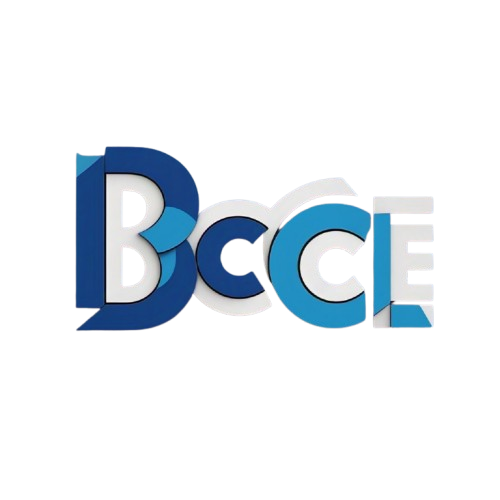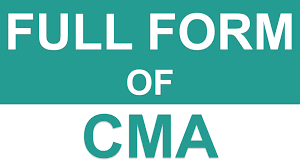Welcome to BCECE, The full form of CMA stands for Certified Management Accountant, a professional certification awarded to individuals in the field of accounting and finance. This credential is globally recognized and signifies that an individual has mastered a comprehensive set of skills that are essential for business management, financial planning, and decision-making. The CMA certification is issued by the Institute of Management Accountants (IMA), a leading professional organization based in the United States.
For professionals working in management accounting, finance, or business leadership, the CMA is a powerful tool that can unlock numerous career opportunities and increase earning potential. This article will delve into the meaning of CMA, the process of obtaining the certification, its benefits, and how it can positively impact a career in finance and accounting.
What is CMA?
The Certified Management Accountant (CMA) certification is a designation that validates an individual’s expertise in financial management and strategic decision-making. It focuses on a wide range of topics within accounting, from financial analysis to cost management and corporate governance. Unlike other accounting certifications, such as the Certified Public Accountant (CPA), which tends to focus more on tax and auditing, the CMA is more centered on management accounting, financial planning, and internal business processes.
The CMA exam is designed to assess a candidate’s knowledge and competence in managing financial information and using that data to influence business decisions. It is particularly relevant for professionals working in management positions or aspiring to work in leadership roles within organizations.
CMA Full Form and What It Entails
As we have established, the CMA stands for Certified Management Accountant. Earning this certification requires passing a rigorous examination that covers two parts:
- Part 1 – Financial Planning, Performance, and Analytics: This section focuses on financial reporting, budgeting, and performance management, including topics like cost management, financial analysis, and decision-making tools.
- Part 2 – Strategic Financial Management: This part dives deeper into corporate finance, risk management, investment decisions, and other aspects critical to strategic business management.
To successfully obtain the CMA certification, candidates must not only pass the two-part exam but also meet certain educational and experience requirements.
Educational and Experience Requirements for CMA
To be eligible for the CMA exam, candidates must meet the following criteria:
- Educational Requirements: A candidate must hold at least a bachelor’s degree from an accredited university or college. The degree can be in any discipline, though a background in accounting, finance, or business is highly beneficial.
- Experience Requirements: In addition to the educational qualifications, candidates must have at least two years of professional experience in management accounting or financial management. This experience can be gained before or after completing the certification process.
The IMA offers flexibility in fulfilling these requirements, as the professional experience can be accumulated in various settings, including within public accounting, corporate accounting, or government roles.
Benefits of Earning the CMA Certification
The CMA credential is valuable for both the professional and the organizations they serve. Here are some key benefits of earning a Certified Management Accountant certification:
- Career Advancement: Obtaining the CMA can significantly enhance career prospects. With the increasing demand for financial expertise in today’s business world, organizations prefer to hire individuals who have a proven ability to handle complex financial data, provide strategic insights, and make informed decisions.
- Higher Earning Potential: According to multiple industry surveys, CMAs tend to earn higher salaries compared to their non-certified peers. The specialized skills and knowledge that come with being a CMA are highly valued, leading to better pay and job stability.
- Global Recognition: The CMA certification is recognized worldwide, making it an excellent choice for individuals who want to pursue international career opportunities. Whether in the United States, Europe, or Asia, the CMA credential is a powerful signal of professional competence.
- Skill Enhancement: Preparing for the CMA exam equips candidates with a broad set of technical and managerial skills. From advanced financial analysis and performance management to strategic decision-making, CMAs are well-equipped to handle the challenges of a modern business environment.
- Networking Opportunities: The IMA, as the body responsible for CMA certification, offers a wealth of networking opportunities. Joining the IMA allows CMAs to connect with fellow professionals in the accounting and finance fields, attend industry events, and gain access to career resources.
How to Prepare for the CMA Exam
Preparing for the CMA exam requires dedication, discipline, and a solid study plan. Here are some tips to help you succeed:
- Understand the Exam Content: Familiarize yourself with the exam syllabus and structure. Knowing what topics will be covered in both parts of the exam will allow you to study effectively and manage your time.
- Use Study Materials: Invest in reputable study materials, including textbooks, online courses, practice tests, and review courses. These resources are designed to help candidates understand complex concepts and prepare for the exam with confidence.
- Create a Study Schedule: Allocate specific hours each day for studying and stick to a structured plan. Spacing out your study sessions over several months will help you retain information better.
- Take Practice Tests: Practice exams are a great way to assess your understanding of the material and simulate the actual exam environment. By taking practice tests, you can identify areas that require additional focus and improve your time management skills.
- Stay Focused and Motivated: Preparing for the CMA exam can be challenging, but staying focused on your goal and keeping a positive mindset will increase your chances of success. It’s also helpful to join study groups or find a study partner for support and accountability.
Cost of the CMA Certification
The cost of pursuing the CMA certification includes several components:
- IMA Membership Fee: To be eligible for the exam, candidates must become a member of the IMA. The membership fee is typically around $245 per year.
- Exam Fees: The exam consists of two parts, and each part has an associated fee. The fee for each part is approximately $450 for IMA members (and $575 for non-members).
- Study Materials: The cost of study materials varies depending on the provider, but it’s recommended to budget between $500 to $2,000 for comprehensive study programs.
- Re-examination Fees: If a candidate does not pass one or both parts of the exam, additional fees for re-examination will apply.
Conclusion
The CMA full form, Certified Management Accountant, is a prestigious designation that holds immense value in the finance and accounting industries. The certification equips professionals with the skills needed to make strategic business decisions, optimize financial performance, and contribute to organizational success. By pursuing the CMA, individuals can elevate their careers, boost their earning potential, and gain global recognition.For anyone considering a career in management accounting or looking to expand their financial expertise, obtaining the CMA certification is a clear path to long-term success.

